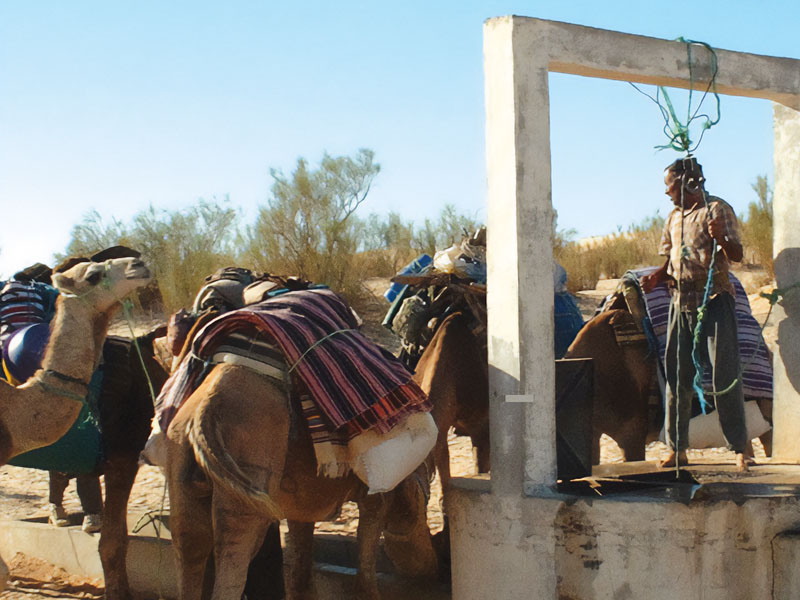Tiheleem The Songs Of Herdsmen Of Camels In The Tunisian Desert
Issue 12

Mohammed al-Jazeerwi (Tunisia)
In the harsh environment of the desert availability of water is essential. The nomadic groups in the western south of Tunisia have strived to find sources of water. Because of the scarcity of water together with the drought, digging wells was the major objective. But the well needs an intensive work for its maintenance.
So many people come to the well, the women, the cavalrymen, the herdsmen and the hunters. The herdsmen have their own style of drawing water from the well. Their wok is accompanied by a certain genre of folksong, the Tiheleem or Taholeem. Moreover, using specific vessels and buckets, the herdsmen have developed their own technique of drawing water from the well. The bucket is usually made of the skin of either the camel or the goat. The bucket has several sizes, sometimes it caries 40 liters. They call the bucket, dallo al har, the bucket of agony referring to the pressure the person feels while drawing water.
However, during these harsh conditions, the herdsmen perform their lovely songs communally with a specific melody. While performing these songs, the herdsmen do not use either air-phones nor rhythm instruments, only one person with clear voice leads the performance while others just repeat ha ha hmm, there they are, referring to the camels and the sheep. This sound ha ha hmm is the source of the name of the genre, taholeem. It is not necessary for the leader of the performance to have a beautiful voice, it should be clear enough to mobilize the chorus. The words of the songs are not random but they are pregnant with rich and positive ideas. Not only that but these songs could be seen as archives and records for the history of the people. For instance they narrate the raids of the Tunisian tribes of the North against each others. The songs also narrate the raids of Tripolian and Algerian tribes against the oasis and the camel marches. Such raids are parts of the traditions and legal means of living of which the people are proud of.
Some genres of the oral literature, such as the of Abu Zeid, the Hilalite contain versions of al tahleem.
For instance, Hagwa the nephew of Abu Zeid, sings the song when he reaches the well of Nagwa.


































































